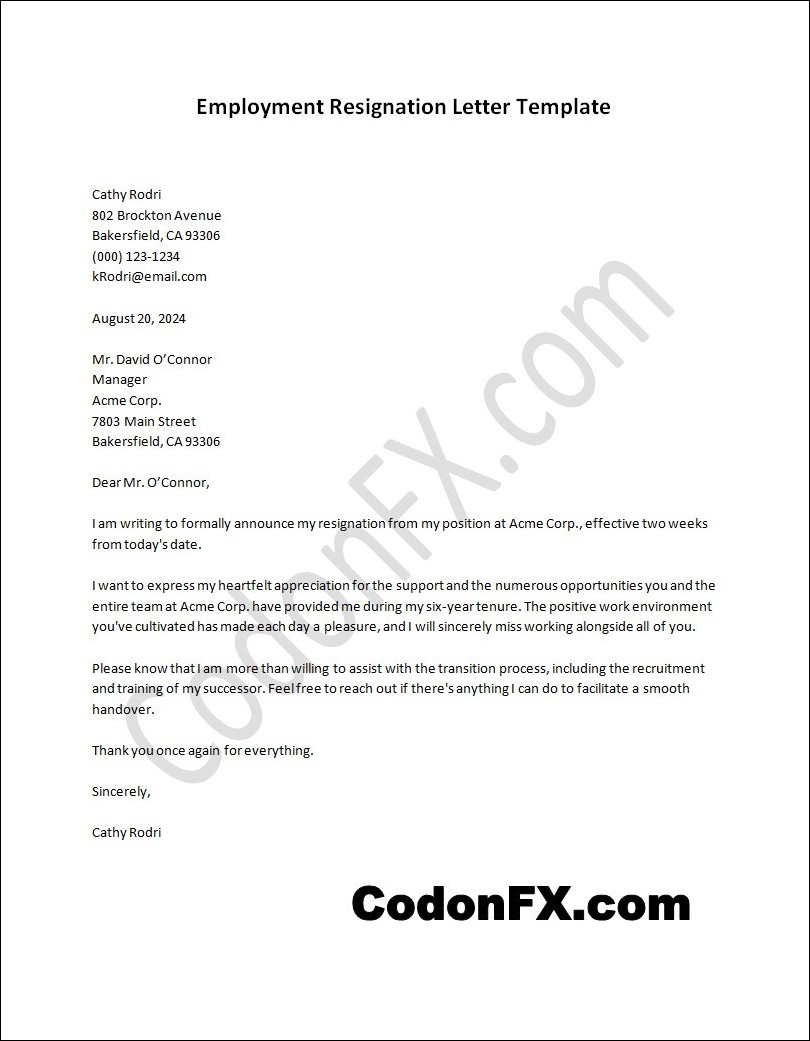
Are you considering resigning from your current job? If so, it’s important to inform your employer professionally by writing an employment resignation letter. This document serves as a formal notification of your intention to leave the company, and it is crucial for maintaining a positive relationship with your employer.
In this article, we will delve into the purpose and benefits of using an employment resignation letter template, discuss what to include in it, provide some helpful tips for creating an effective letter, and even offer a sample template to guide you through the process.
Whether you’re new to the job market or a seasoned professional, understanding the ins and outs of resignation letters can greatly contribute to a smooth and respectful departure from your current position.
What is an employment resignation letter?
An employment resignation letter is a formal document that an employee submits to their employer to formally announce their intention to leave the company. It serves as a written notice of the employee’s decision to terminate their employment contract.
One of the main purposes of an employment resignation letter is to maintain professionalism and ensure a smooth transition. By submitting a resignation letter, the employee informs the employer in writing, allowing them to make necessary arrangements for finding a replacement. It also provides an opportunity for the employee to express gratitude towards the company and colleagues, highlighting any positive experiences gained during their tenure.
Furthermore, an employment resignation letter helps to formalize the end of the employer-employee relationship. It serves as a legal document that can be referenced in case of any disputes regarding the employee’s departure or final dues. This letter also allows the employee to keep a record of their resignation, which might be necessary for future job applications or reference checks.
Benefits of Employment Resignation Letter
Here are some key advantages of using an employment resignation letter:
- Professionalism and courtesy: By submitting a resignation letter, employees demonstrate professionalism and courtesy towards their employers. It shows that they respect the organization and its processes, providing a smooth transition for both parties involved.
- Documentation: An employment resignation letter serves as a written record of the employee’s decision to resign. It provides documentation of the exact date the resignation was submitted, which can be helpful for legal or reference purposes in the future.
- Clear communication: Resignation letters ensure clear and effective communication between the employee and the employer. It eliminates any ambiguity or misunderstanding regarding the employee’s departure, such as the reason for leaving or the notice period.
- Notice period: In many cases, employment contracts require employees to provide a notice period before leaving the company. By submitting a resignation letter, employees fulfill this obligation and allow the employer to make necessary arrangements for finding a replacement or redistributing the workload.
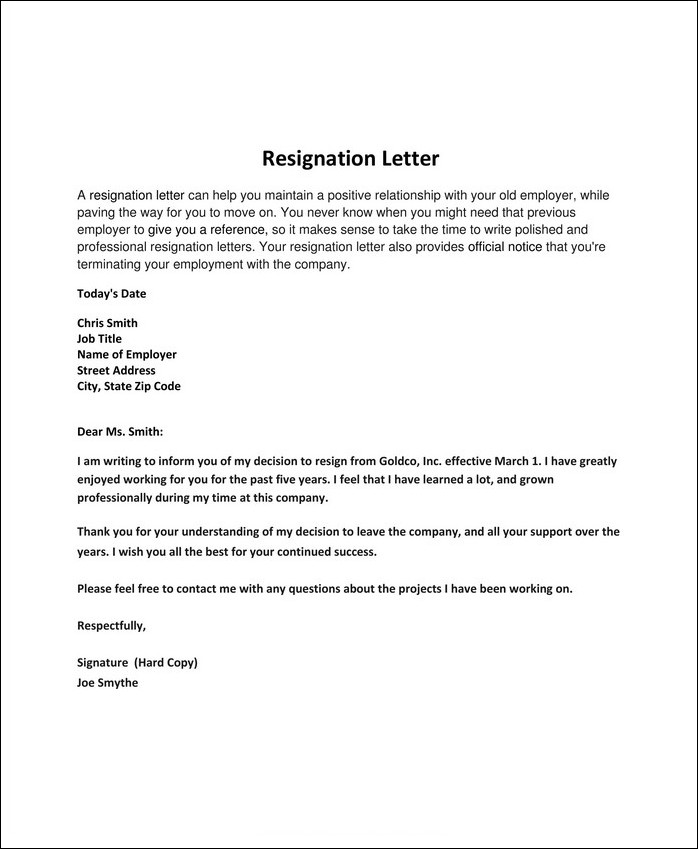
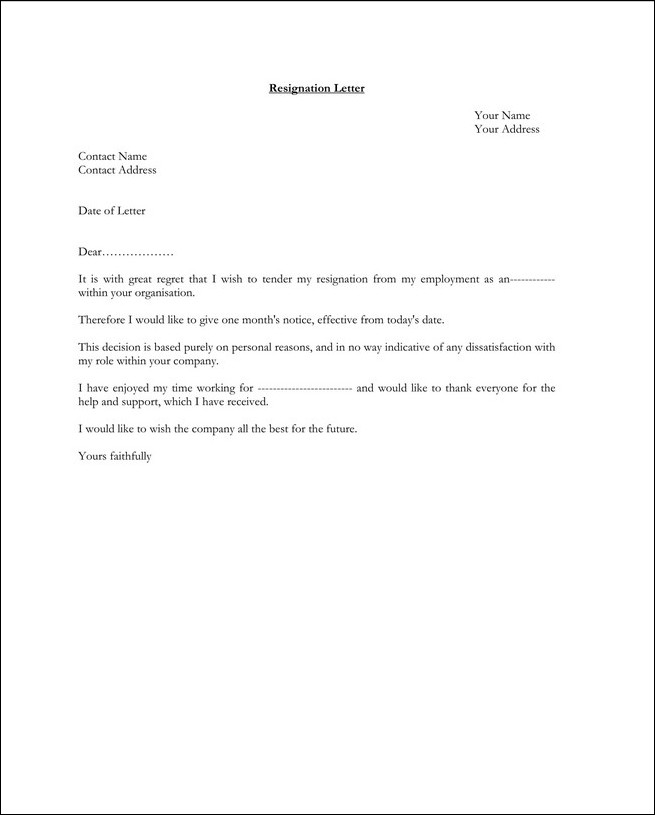
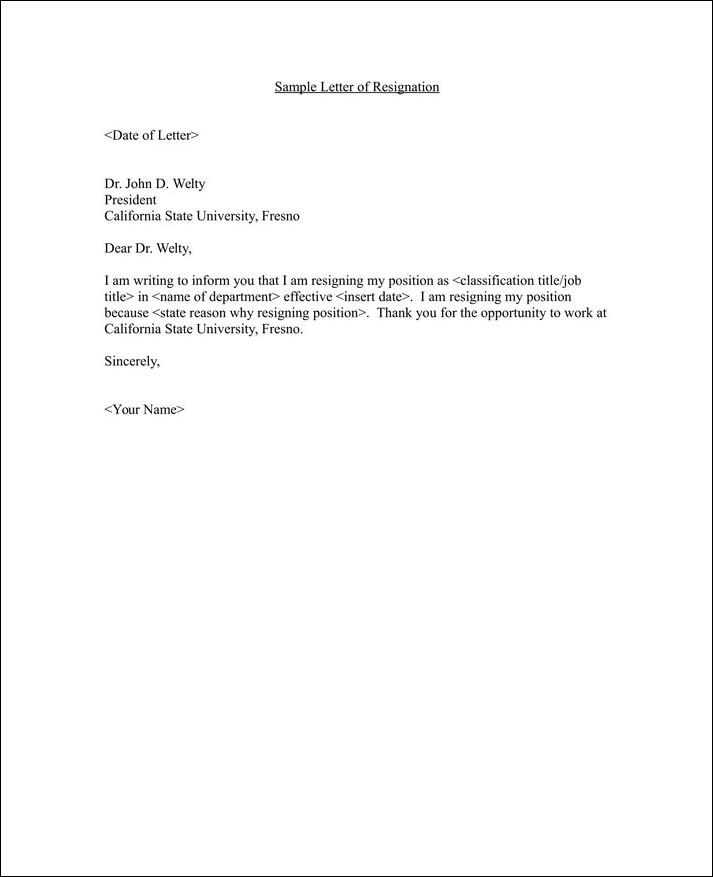
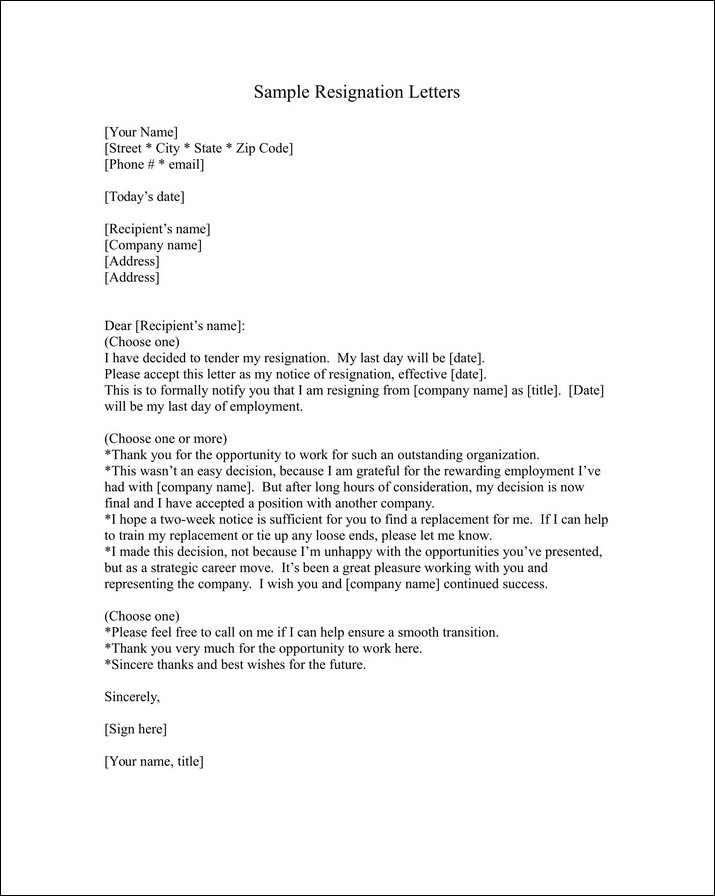
What to include in an employment resignation letter?
When writing an employment resignation letter, it is important to include certain key elements to ensure clarity and professionalism. Here are some essential components to include in your resignation letter:
- Date: Begin the letter by including the date on which you are writing and submitting the resignation letter. This helps establish a timeline for your departure.
- Recipient: Address the letter to your immediate supervisor or the appropriate person in your organization who handles resignations.
- Salutation: Start the letter with a formal greeting, such as “Dear [Supervisor’s Name],” or “To Whom It May Concern.”
- Statement of Resignation: Clearly state your intention to resign from your current position. Mention the specific job title and department you are resigning from.
- Effective date: Specify the date on which your resignation will become effective. This allows your employer to plan for your departure and initiate necessary processes.
- Reason for resignation: While not mandatory, you may choose to briefly mention your reason for resigning. It is important to maintain a professional tone and avoid negative comments or criticism.
- Gratitude: Express your appreciation for the opportunities and experiences you have had during your time with the company. This shows respect and leaves a positive impression.
- Transition assistance: Offer your assistance in making the transition smoother, such as training a replacement or providing any necessary handover documentation.
- Contact information: Provide your contact information so that your employer can reach you if needed, even after your departure.
- Closing: End the letter with a polite closing, such as “Sincerely” or “Best regards,” followed by your full name and signature.
Tips to create an employment resignation letter
Here are some tips to help you create an effective resignation letter:
- Be professional and concise: Keep your resignation letter professional and to the point. Clearly state your intention to resign, mention the date of your last working day, and express gratitude for the opportunities you have had while working at the company.
- Use a polite and positive tone: Maintain a polite and positive tone throughout the letter, regardless of your reasons for leaving. Avoid criticizing the company or your colleagues, as this may tarnish your professional reputation.
- Provide a reason (optional): While it is not mandatory to provide a reason for your resignation, you may choose to include it in your letter. However, it is advisable to keep the reason brief and positive, focusing on personal growth or new opportunities.
- Offer assistance with the transition: Show your willingness to help with the transition process by offering assistance to your employer. This can include training your replacement or providing detailed handover notes to ensure a smooth transition for your colleagues.
By following these tips and considering the key points mentioned above, you can create a well-crafted employment resignation letter that reflects your professionalism and ensures a positive end to your tenure with the company.
Employment Resignation Letter Template | Word – Download